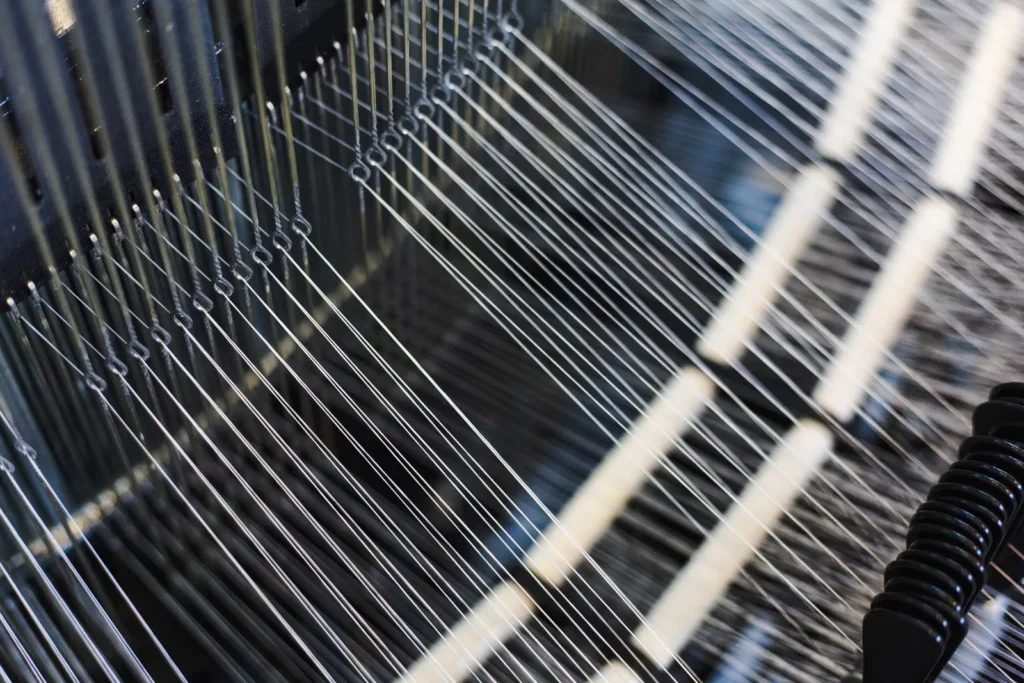
While energy emissions may be the biggest piece of the GHG pie, industries like food and fashion continue to contribute heavily and have costly environmental impacts as well. In its current state, the global fashion energy is wasteful and emissions-heavy—an estimated 4 percent of greenhouse gas emissions and 4 percent of global waste are attributed to fashion production.
There’s ample appetite for sustainable solutions—and many startups churning them out. Global fashion brands have been propping up new biomaterials on the runway; Stella McCartney and Keel Labs recently debuted Kelsun, a seaweed fabric made from kelp-based yarn, and Balenciaga debuted Gozen’s Lunaform, at Paris Fashion Week in 2023. Governments are on board, too—the US Congress recently earmarked $14 billion in incentives for fashion companies to establish circular, reusable, and onshore manufacturing.
Unpsun has pioneered another solution to address fashion waste and emissions. Vega™, its proprietary 3D weaving technology, can spin up a pair of custom pants from yarn in under 10 minutes, allowing brands to achieve on-demand, zero-inventory production, resulting in reduced waste, emissions, and transport costs.
Per Wired, “The typical cut-and-sew process, according to Unspun, on average trashes 14 percent of the material. 3D weaving produces only 3 percent cutting waste. This method also cuts down on emissions spent landfilling or incinerating surplus fabric.”
The new partnership with Walmart, one of the largest retailers in the world, accelerates Unspun’s vision to boost textile manufacturing across North America and introduce a cleaner, more efficient apparel supply chain. Unspun, which announced a $14M Series A in June 2023, plans to deploy over 350 Vega™ machines throughout North America by 2030.
